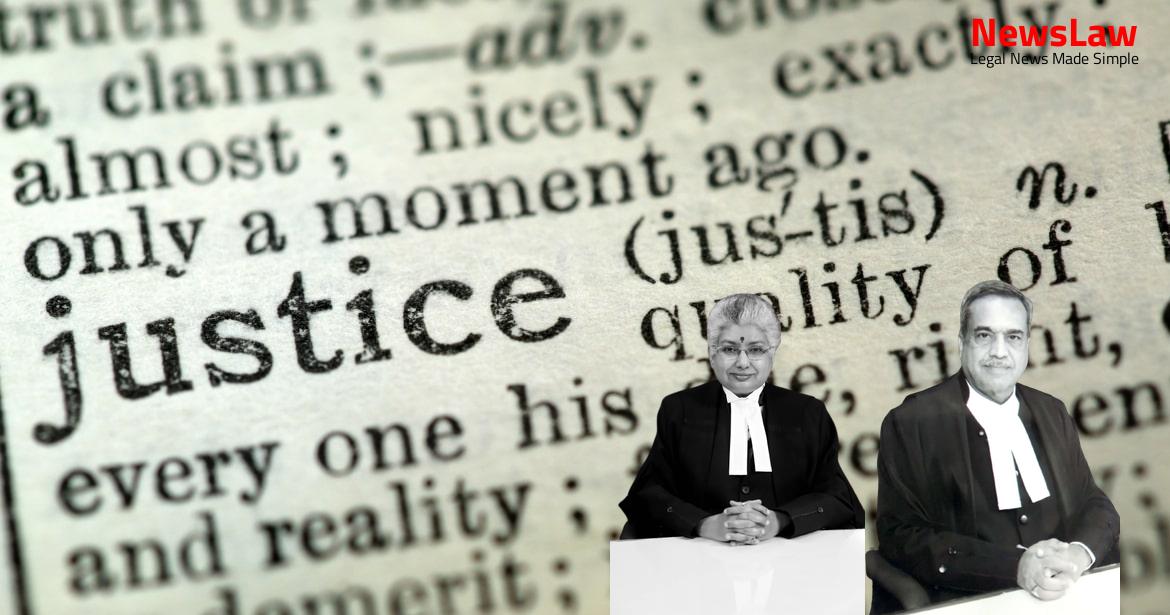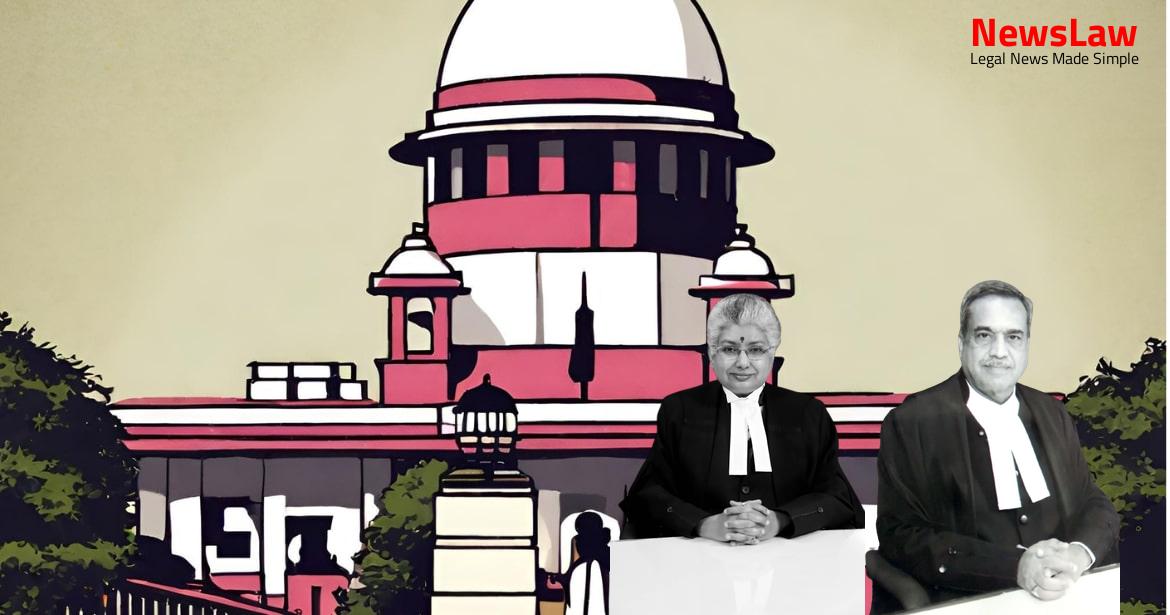In a significant legal battle for educational rights, the Supreme Court of India has delivered a monumental judgement in the case of a meritorious candidate seeking justice. The decision sets a precedent for ensuring fairness and transparency in admissions, particularly in the realm of medical courses. Stay updated as we delve into the details of this landmark ruling that impacts the future of education in the country.
Issue
- Whether a meritorious candidate denied admission can only be granted compensation as relief
- Is the cut-off date of 30 September absolute or can exceptions be made
- What relief is a meritorious candidate entitled to when denied admission through arbitrary and illegal actions
- Can admission be granted after the cut-off date if the candidate has pursued legal rights promptly
- Can the court order admission beyond the intake limit or in the following academic year
- Reference to the Asha case where exceptions to the strict adherence to merit-based rules were considered
Also Read: Dispensation with Personal Appearance in Criminal Case: Landmark Judgement by Supreme Court of India
Arguments
- The High Court concluded that the appellant was entitled to priority and was more meritorious based on marks obtained.
- The denial of admission by the High Court was solely due to the expiry of the time limit, citing the Jasmine Kaur case.
- A larger Bench was referred to considering the conflicting views in the Asha vs. Pt. B.D. Sharma UHS and Jasmine Kaur cases.
- The petition was filed after the academic session for that year had already commenced, leading to denial of admission for the Academic Session 2015-16.
- The primary relief sought was restitutionary in nature, prompting the appellant to approach the High Court for admission in the sports and games category.
- Compensation was considered an additional remedy but not a substitute for restitutionary remedies.
- The power of Articles 32 and 226 should not be limited to constricted interpretations, as per the appellant’s counsel.
- In cases where fault lies with the authorities and rules have been breached, the court can deviate from the normal time limit for admission.
- Meritorious candidates should not be penalized due to faults of authorities, even if the admission time limit has passed.
- The possibility of granting admission despite the expiry of the admission time frame was advocated in rare exceptional cases.
- The denial of admission to a meritorious candidate due to authorities’ faults and inaction was deemed unjust, especially if the candidate had pursued legal remedies promptly.
- The provision for additional time for admission in exceptional cases was debated in light of the conflicting viewpoints in past cases.
- The importance of fair and equal treatment, adherence to admission schedules, and avoidance of seat carry-forwards were emphasized in the arguments.
- The Court may consider accommodating a student in the next academic year only in cases where monetary compensation is not sufficient to address the candidate’s injury.
- Certain conditions must be met for this accommodation, such as immediate approach to the Court, higher merit than the last admitted student, and compliance with all requirements and document submissions on time.
- Criteria to determine delay in approaching the Court include challenging provisions in notifications before counseling, challenging eligibility criteria before the first round of counseling, challenging counseling processes immediately after each round, and a limit of two seats per institution for such accommodations.
Also Read: CCC Certificate Equivalence: Setting Precedent for Future Verifications
Analysis
- Compensation for loss of year could be provided, but denial of admissions to a meritorious candidate cannot be compensated in monetary terms.
- Courts will only admit candidates to courses after the deadline of 30 September in the rarest of rare cases where justice would be subverted.
- All stakeholders and authorities must strictly follow the deadline of 30 September for admissions.
- It is vital for meritorious students to have access to medical courses, and denial of admission violates their fundamental rights.
- Granting compensation is the only relief that can be provided in cases of denial of admission due to the cut-off date being passed.
- Candidates who have pursued legal action expeditiously but are denied admission due to the deadline may be entitled to compensation only.
- Admissions should ideally close by 15 September, with rare exceptions requiring court intervention for admission after the deadline.
- Courts should avoid giving interim orders in admission disputes.
- Students should not be permitted to continue courses if admissions are found to be legally unsustainable.
- Any relief granted by courts must be based on unique circumstances of each case.
- Courts may grant exceptional relief for admission after the cut-off date in rare and exceptional cases.
- Restitutionary remedies cannot be substituted with compensation.
- The authority to increase the number of seats lies exclusively with the Medical Council of India.
- In cases where a candidate is not selected due to fault of institutions/authorities and the opportunity for admission is lost, the candidate should not be victimized and may be compensated.
- Candidates must pursue their legal remedies promptly to be eligible for relief from the court.
- Candidates who waive their rights or do not act promptly cannot claim relief.
- Adherence to schedule of admissions is crucial for fair treatment and violation of this may infringe on rights under Article 14, 19, and 21 of the Constitution.
- When denial of admission violates Article 14, the injured citizen must be restored to their original position.
- All stakeholders and authorities must strictly adhere to the rule of merit, fairness, and transparency in admissions.
- The larger Bench will consider the situation where a meritorious candidate is denied admission despite pursuing legal remedies promptly.
- Relief granted by the Court must adhere to the rule of merit and no exceptions should be made for preference of courses and colleges.
- Contempt of Courts Act may be initiated against erring authorities if admissions are found to be legally unsustainable.
- Continuation of students in courses cannot be permitted solely based on the time spent if admissions are legally unsustainable.
- In cases where a more meritorious candidate has been illegally denied admission, the court may consider granting admission in the next academic year after a hearing for the affected student.
- If no relief can be granted for the current academic year due to arbitrary actions by authorities, the court may direct admission in the subsequent year by increasing seats or adjusting management quota.
- Compensation may be awarded to a meritorious candidate who loses a year of study due to wrongful denial of admission as an additional remedy.
- Efforts should be made to expedite cases related to medical course admissions where the student has promptly approached the court.
- Under exceptional circumstances and if no fault lies with the candidate, the court may order admission in the same year by increasing a small number of seats, but not beyond October 30.
- The decision in Jasmine Kaur case or any other contrary decisions are overruled.
- The above stand shall prevail.
Also Read: Judgment on Reinstatement of Junior Accounts Clerk Position
Decision
- The decision in the case of Asha is affirmed
- The decision is affirmed to a specific extent which is not specified in this reference
- The specific extent to which the decision is affirmed needs to be determined based on the original judgment
Case Title: S. KRISHNA SRADHA Vs. THE STATE OF ANDHRA PRADESH
Case Number: C.A. No.-001081-001081 / 2017



